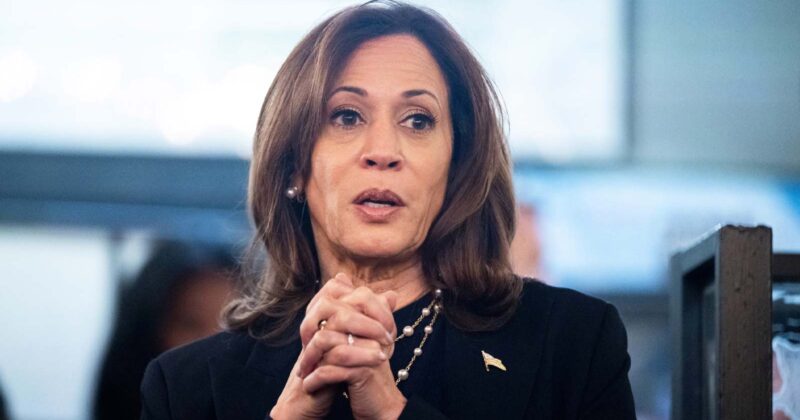With only four days to go before Election Day, Democratic presidential nominee Kamala Harris got an unfavorable non-farm payrolls report, which shows that job creation stalled as a likely consequence of the untimely combination of Hurricanes Helene and Milton and the Boeing’s machinists’ strike.
Payroll employment remained essentially unchanged in October, with employers adding just 12,000 positions, far below the average forecast of 100,000 in a poll of economists by Bloomberg. The unemployment rate staying flat at 4.1 percent, according to the report published by the U.S. Bureau of Labor Statistics on Friday morning.
The economy has consistently been the most important issue in this election cycle. According to polling conducted exclusively by Redfield & Wilton Strategies in October on behalf of Newsweek, 51 percent of voters think the economy is heading in the wrong direction, while 30 percent believe it is going in the right direction.
The jobs report is considered a clear snapshot of the country’s economic performance. In the case of October’s report, experts expected the impact of the hurricanes and the Boeing strike to temporarily bring down payroll employment from the revised September figure of 223,000.
However, some think that the pace of job growth is still strong, and the numbers shouldn’t be seen as a sign of a general slowdown.
“As a baseline, the U.S. economy has proved more resilient and robust than has been expected,” Mark Hamrick, senior economic analyst and Washington bureau chief for Bankrate, told Newsweek.
“That’s been affirmed by above-trend growth over the past two years (GDP) and a low unemployment rate, recently at 4.1 percent, close to what’s associated with full employment,” he added. “Wages have been rising above the pace of inflation for 18 months.”
While October’s hiring and unemployment numbers suffered some dampening effect from the storms and strike, it wasn’t as bad as some experts feared—possibly because the disrupting events were too short to leave a significant mark in the data.
“Any short-term variability likely says less about the broader economy and more about temporary disruptions,” Jennifer Harris, former senior director of the National Security Council and National Economic Council, said in a statement shared with Newsweek.
“The larger trend continues to point toward an economy steadily consolidating gains, with inflationary pressures easing and employment holding strong over the past year,” she added.
“In fact, we are witnessing an economic recovery that is the envy of the world: strongest real wage gains in years, bullish growth and productivity numbers, record highs for the S&P and the Dow, record corporate profits, strongest investment in manufacturing in decades, low inflation.”
Harris attributed the strength of the U.S. economist to the difficult decisions made by the Biden-Harris administration in the past four years, and called for the next administration to “build on this progress.” But whichever way the jobs report was going to go, Republicans were likely to use the numbers against the Biden-Harris administration and the Democratic candidate, blaming the two for the U.S. economic woes.
Even when the jobs reports have shown good numbers, MAGA Republicans have gone as far as to cast doubt over the legitimacy of the data they contained. Senator Marco Rubio of Florida going as far as calling the September one, which showed great hiring numbers, “fake.”
The October jobs report is also unlikely to sway any voters in Harris’ direction, despite the importance that the economy has had during this election cycle.
A poll of 1,007 registered voters from October 17-21 for the Financial Times and the University of Michigan Ross School of Business found 44 percent trusted Republican presidential nominee Donald Trump more to handle the economy against 43 percent for Harris. The poll’s margin of error was plus or minus 3.1 percentage points.
“The health of the job market is an issue, but not a huge issue relative to other ones including inflation and housing affordability. And that’s limiting the consideration to economy-related issues,” Hamrick said.
“While the monthly employment data is always among the most important releases of the month, I don’t see how it would play a role in potentially swaying a persuadable voter to one side or the other,” he added.
“Between early voting—with millions of Americans already having turned their ballots in—and those who have already decided, one monthly jobs report is unlikely to be a huge event ahead of Election Day.”

